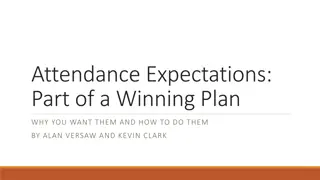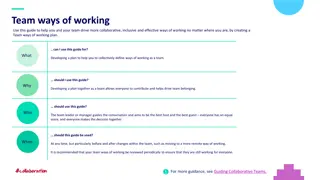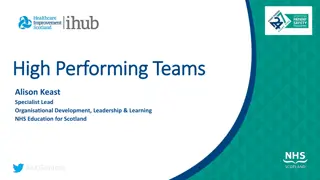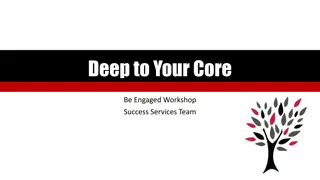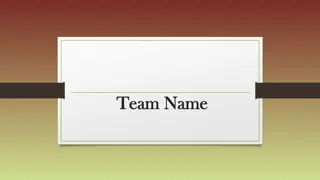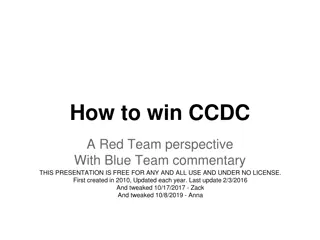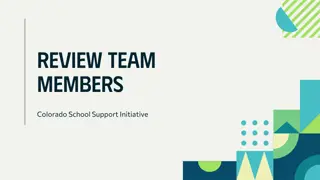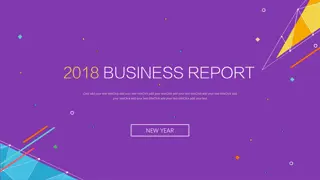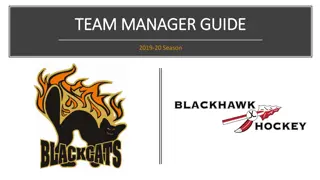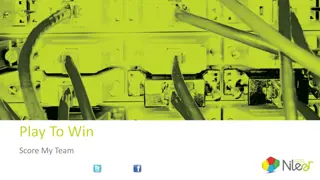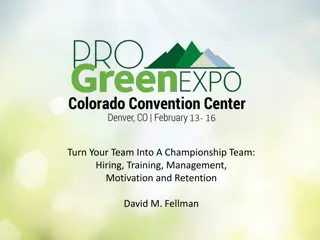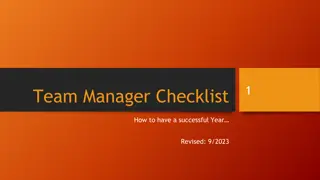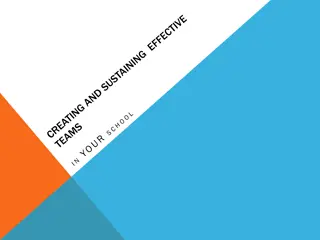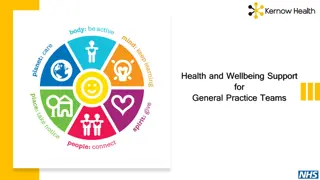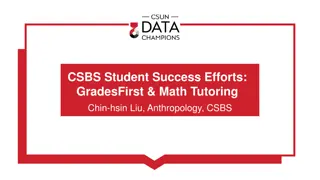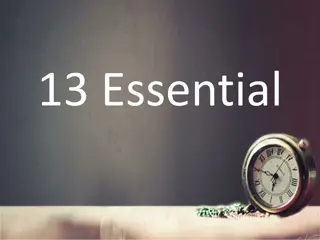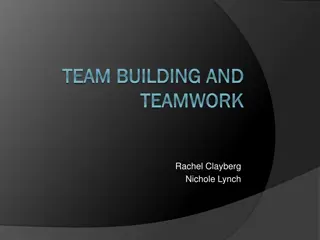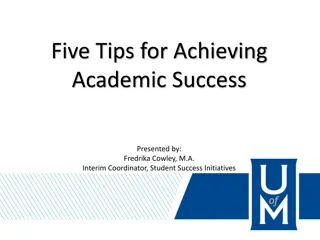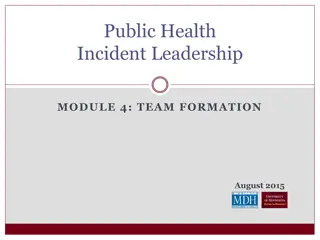How to Improve Your Team: Strategies for Success
This presentation provides valuable insights on how to enhance your team's performance and achieve success in competitive environments. It emphasizes setting clear and achievable goals, managing expectations, and leveraging strengths to drive continuous improvement. By focusing on incremental progress and fostering a team-oriented mindset, you can cultivate a culture of excellence that propels your team towards greater accomplishments.
Download Presentation

Please find below an Image/Link to download the presentation.
The content on the website is provided AS IS for your information and personal use only. It may not be sold, licensed, or shared on other websites without obtaining consent from the author. Download presentation by click this link. If you encounter any issues during the download, it is possible that the publisher has removed the file from their server.
E N D
Presentation Transcript
How to Improve Your Team Gabe Salas, Team 233 Stephen McKinney, Team 987 With Ty Tremblay and Evan Morrison from GameSense
What this Presentation is NOT 7 Tips on How to be Like 1114! (You Won t Believe #4) Being among the greatest is a long, difficult process focus on being better instead of The Best See the history of Team 971
Goal Setting Plan your goals as a team Clearly Concisely Attainable What is success for your team? Robot performance Winning a particular award (Chairman s, Safety, design) Making it to playoffs
Goal Setting Setting a goal of winning CMP Chairman s is probably too high at the start 987 s Road to the Hall of Fame Did not begin with winning Chairman s in mind Goals start smaller, locally Winning regionally can inspire you to reach higher, and expand your team s reach
Goal Setting Start by picking an objective you think you can achieve and do it Build confidence and experience before taking big leaps and stretch goals
Setting Expectations Rome wasn t built in a day It will take time to make great improvements If you aim high, expect it to take a long time to implement
Setting Expectations Dragging vs. Pushing Ensure the team as a whole wants to go the direction the team is going Is this a goal the team wants? If not, take a step back and punt Constantly examine and reevaluate progress Students or mentors can drag the other along Excited students can move mentors out of their comfort zone
Right Think, Right Build, Right Do Evaluate your capabilities before you build Determine what is possible, what is nice to have, and what you must do Work within your means (not just with robot building!) Set your goals before you see the game, and reevaluate after you see the game
Right Think, Right Build, Right Do Good robots can be built without lots of manufacturing or people resources Iterative design does not require lots of money (see BTL Episode on Prototyping) Have a team structure set-up to pass along knowledge year to year
Does Money Really Make the World Go Round? Great teams are not great because of money, they have money because they are great at what they do! There are many foundations to a great FRC team that require no money Organization Mentors Training team members
Does Money Really Make the World Go Round? Money is a tool like anything else. 987 won a world championship in 2007 on a budget under $20,000 Use resources you already have Find them; parents, students, school, existing sponsors Ex: Use your new machining sponsor for a great manipulator and not a drivetrain. Use the kitbot instead
Does Money Really Make the World Go Round? Use goal setting and planning to increase your fundraising Show sponsors you have a plan and where you are going they love to see impact! Asking for more is easy if you can show you are succeeding Combine outreach, sponsors searching, and other activities Do what you are doing now, but better; you don t need a revolutionary change to improve bit by bit
Red Herrings Many things great teams do give them small edges, not make them great Determine what your team really needs to do to improve DO NOT blindly copy aspects of the best teams
Red Herrings Example: Scouting Systems All the bells and whistles can take a lot of resources What do you need to do to succeed at an event? Is all that data needed? Solution: base your system on only what you need to know based on your robot/team You can do it if you want; understand the consequences (reduced resources elsewhere)
Red Herrings Example: Custom drivetrain Zero engineering time is required to be 90% effective as top teams Kitbot is really that good most of the time
Red Herrings Is Einstein really your team s goal? Not everyone has to aim to win the World Championship Use the district system to your advantage (if applicable) Try setting a goal for DCMP, or playing on Saturday at all your events
Summary Improvement is a year-over-year project Set goals to give your team focus How does your team define its success? Make sure your goals are attainable You need something else to build on Do what you need to do in order to achieve these goals Fundraise, network, recruit, market Evaluate and reflect Did you achieve your goals? How can you do better next time?


